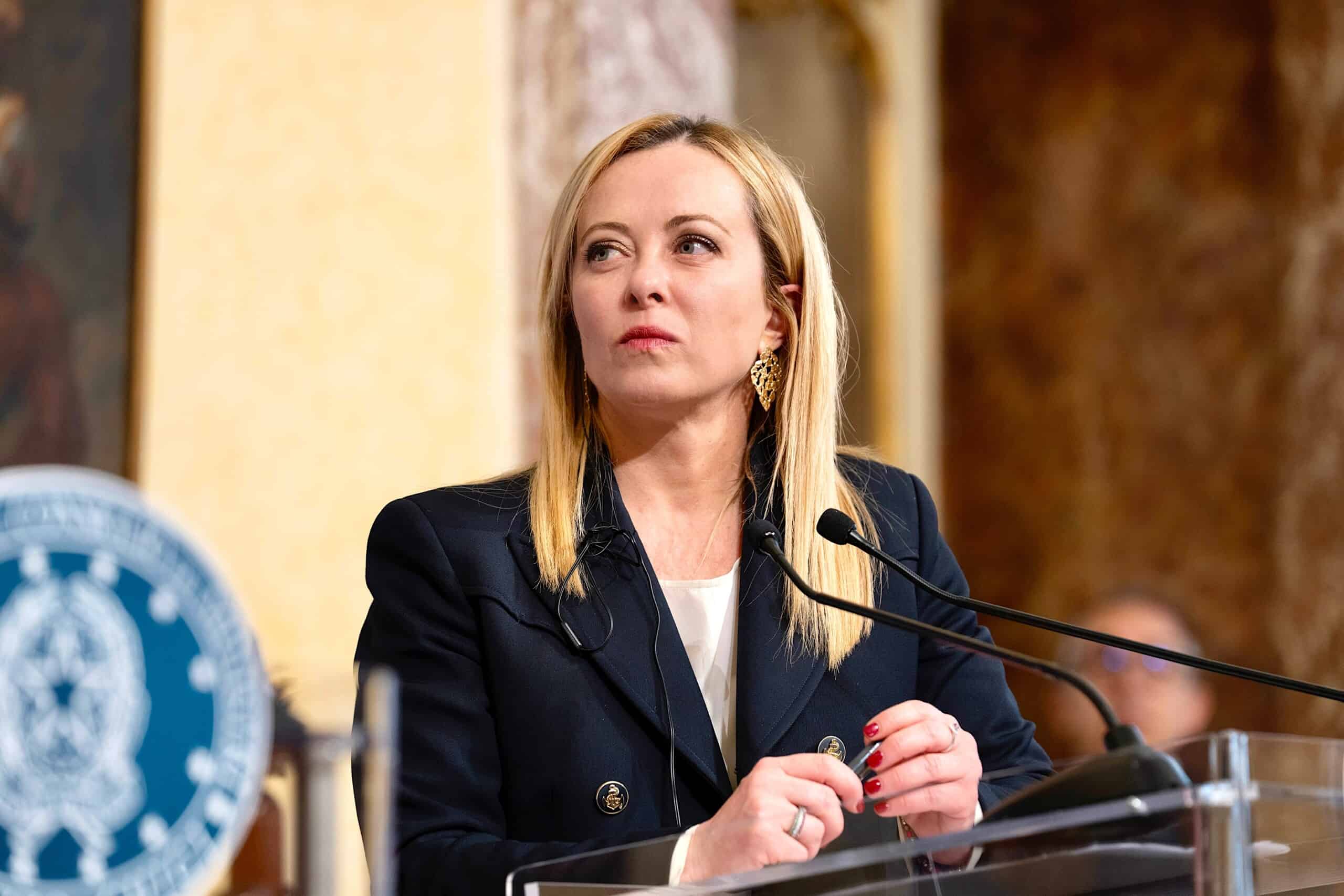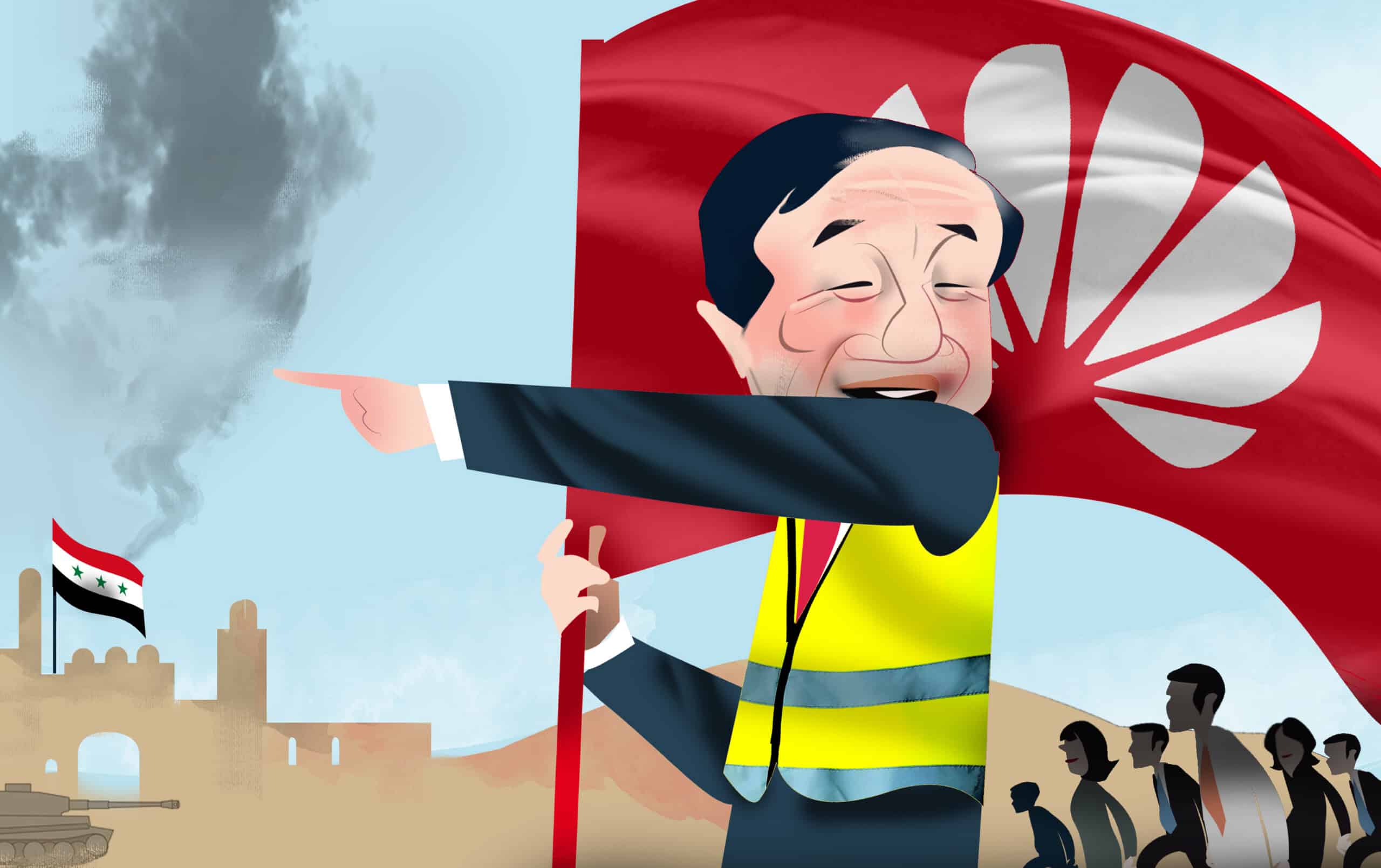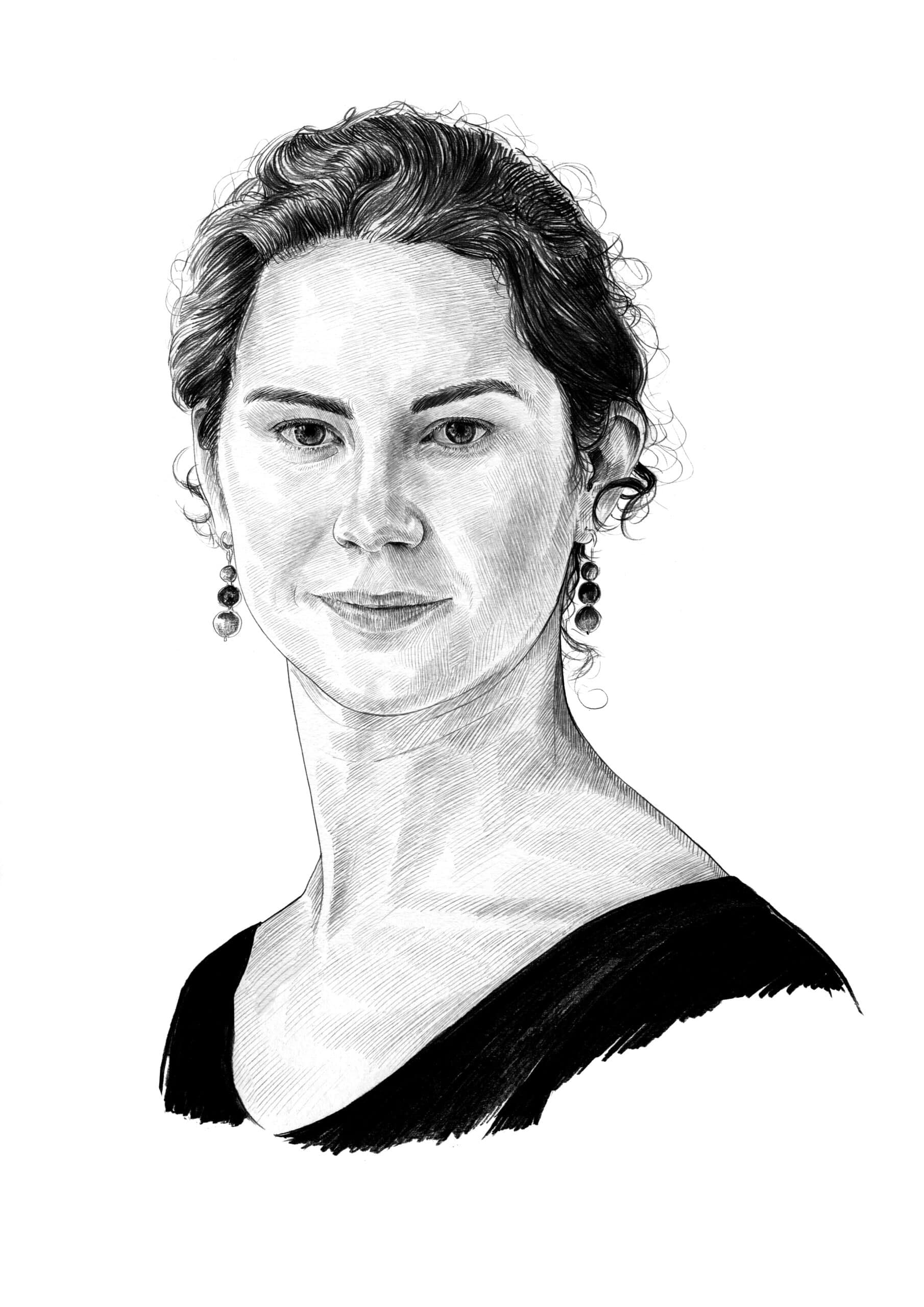
Visitors to the Hong Kong Museum of Art are currently admiring splendid paintings by Italian masters of the Renaissance.
Among the collection is a strange picture by Zorzi Giorgione from 1505 entitled Moses Undergoing Trial by Fire. It portrays an ancient legend in which a baby Moses eats hot coals during a confrontation with the great Pharaoh of Egypt.

An angel guides Moses through the ordeal, an intervention that came to be seen as an omen that God would later choose the prophet to lead his people out of slavery and into the promised land.
The picture — which has never been previously exhibited in Asia — is one of 50 on loan to the museum from the Uffizi Galleries in Florence. Major exhibitions of this type require years of planning, so the agreement to send the masterpieces to Hong Kong was reached when Italy was enthusiastically working to deepen its ties with China.
These days, the way the two countries interact is providing a daunting test of loyalty for Italy, a NATO member which is about to assume the rotating presidency of the G7.
For a while, China was regarded as a white knight which would revive the flagging Italian economy. There was little complaint in 2015 when the China National Chemical Corporation splashed out nearly eight billion dollars for Pirelli, a tyre company, which used photographs of nude women to promote its brand on calendars in the 1980s. Pirelli’s marketing team insisted the images were not smutty, but examples of fine art.
When Giuseppe Conte’s populist government signed a memorandum of understanding in relation to Xi Jinping’s flagship Belt and Road initiative in March 2019, China viewed it as a symbolic win in Europe, and celebrated it as a sign of its growing political and diplomatic influence in the world.
…the Italian leader is in turn at the heart of a sea-change in European attitudes towards the world’s second-largest economy.
However, Italy’s current prime minister Giorgia Meloni, has taken a far less upbeat view of China. While she is hardly as inspirational leader as Moses proved to be, she is hoping to turn the tide when it comes to European attitudes towards the world’s second-largest economy.
“The tool of the (BRI) … has not produced the results that were expected,” she said recently, before announcing Italy was pulling out of the partnership deal. Meloni has been critical of China for its treatment of ethnic minorities in Xinjiang and its handling of the Covid outbreak in Wuhan. She has issued blunt warnings about the risks of any potential attack on Taiwan: Italy has secured important business deals with the Taiwanese chipmaker, TSMC.
And while Meloni has said she wants to improve cooperation with China on trade and the economy, she has also been a particularly harsh critic of China’s “no limits” relationship with Russia, following the invasion of Ukraine.
Meloni’s stance on China is significant for Europe and the rest of the world. Last week, she played a key role at the summit of EU leaders in Brussels, during which an extension of sanctions on Chinese companies was discussed.
And from the start of 2024, she will raise her profile on the global stage, as Italy takes up the rotating presidency of the G7, which also comprises Britain, Canada, Germany, France, Japan and the United States, plus the European Union.
This will provide her with an opportunity to set the geopolitical agenda during trips around the world and at a major summit in the Sicilian resort town Taormina next summer. The theme of the presidency will be Building the Foundations of Renewed Trust. There will be an attempt to coordinate international efforts to deal with problems in sub-Saharan Africa which prompt people to migrate to Europe. Many of those migrants have become Italy’s responsibility and Meloni’s Brothers of Italy party is known for its policies to reduce mass immigration.
Her focus on that issue, as well as a socially conservative outlook, led her to be labeled a far-right politician when first elected. In fact, she heads a populist-conservative coalition which has adopted more moderate positions on contentious issues, including immigration, than analysts expected.

In turn, her relationships on the global stage have proceeded more smoothly than initially expected — in part because her coolness towards China is in tune with attitudes in several Western capitals. On a trip to Washington in the summer of 2023, Meloni made a point of meeting politicians from both right and left. She told reporters that she aligned more closely with Republicans, but insisted that should be no obstacle to having a “great relationship” with Joe Biden.
The two leaders discussed Italy’s participation in the Belt and Road Initiative and afterwards, she indicated that she liked the president’s approach.
“We know who our friends are in times that are tough,” she commented after her talks with Biden in the Oval Office.
Biden believes he can depend on Meloni’s support over Ukraine. The Europeans have confronted Xi Jinping with a list of 13 China-based entities, which are accused of circumventing sanctions against Russia, and asked him to deal with them.
…Italy finds itself in the spotlight as it and its Western allies struggle to redefine their ties with a country with which they previously allowed ever-closer economic ties.
China’s hope of keeping Italy as a trusted friend in Europe and the G7 now seems like a distant dream.
The economic implications of the new approach are not yet clear. Italy retains strong trading links with China, which imported $26.9 billion in Italian goods last year, up by a quarter from the pre-pandemic $21.4 billion in 2019. That may explain why the Meloni government seems to have adopted a less stringent approach towards “de-risking” from China than some other nations.
By virtue of its pending G7 leadership, Italy finds itself in the spotlight as it and its Western allies struggle to redefine their ties with a country with which they previously allowed ever-closer economic ties. For Meloni and Europe, the promised land of settled relations with China remains a way off.

Duncan Bartlett is the Editor of Asian Affairs magazine and a Research Associate at the SOAS China Institute, University of London where he hosts the weekly podcast, China In Context.




